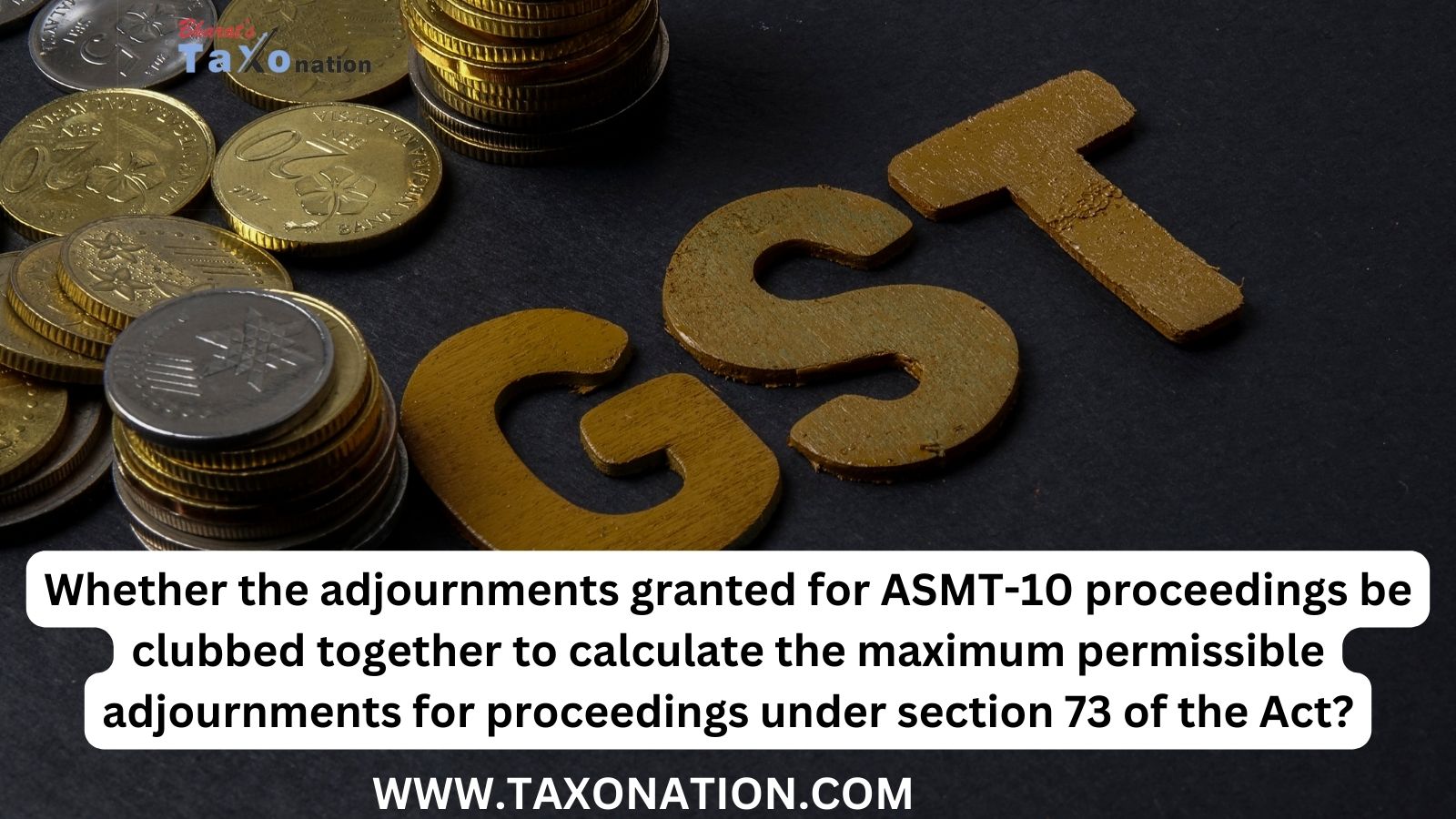
No, the Honorable Calcutta High Court in the case of Pioneer Co-Operative Car Parking Servicing and Constructions Society Ltd. v. Senior Joint Commissioner [2024 TAXONATION 467 (CALCUTTA)] disposed of the writ petition holding that the adjournments granted for the notice issued under section 61 cannot be clubbed together with proceedings under Section 73 of the Central Goods and Services Tax Act, 2017. The Honorable Calcutta High Court noted that as per sub-section (5) of Section 75 of the CGST Act, upon sufficient cause shown by the person, the adjournment should be granted by the proper officer and the reasons are to be recorded in writing. However, the adjournment should not be granted more than three times to a person during the proceeding. The Honorable Court opined that the adjournment granted to the Petitioner in relation to the proceedings under Section 61 of the CGST Act cannot be clubbed together with the SCN proceedings and holding that the Petitioner was granted ample opportunity to respond to SCN issued under Section 73(1) of the CGST Act is erroneous. The Honorable Court quashed the recovery notice.
Author’s Comments
Proceedings under section 73 of the CGST Act are completely different and independent of section 61 proceedings. Proceeding under section 61 of the CGST Act is a pre-adjudication exercise (where no demand can be confirmed and recovered) and certainly not a pre-condition to initiate proceedings under chapter XV of the CGST Act. Although, the Proper officer to issue a notice under sections 61 and 73 of the CGST Act might or might not be the same one, but the adjournments granted during section 61 proceedings cannot be considered as adjournments granted for the purpose of section 73 of the CGST Act.
Section 75(5) states that if sufficient cause is shown, the proper officer is empowered to grant maximum of three adjournments to a person during the proceeding. This power must neither be misused nor left to fall into disuse. Many instances arise where intervention is warranted but this request may be entertained based on ‘sufficient cause’. The Apex Court in case of Esha Bhattacharjee v. MC of Raghunathpur Nafar Academy (2013) 12 SCC 649 has held that reasonableness, practicality and fairness must underpin course of disposal of all such requests and applications and extent of condonation allowance must not exceed statutory boundaries even in meritorious facts.
Topic-Pioneer Co-Operative Car Parking Servicing and Constructions Society Ltd. v. Senior Joint Commissioner
Citation-2024 TAXONATION 467 (CALCUTTA)
Comment: